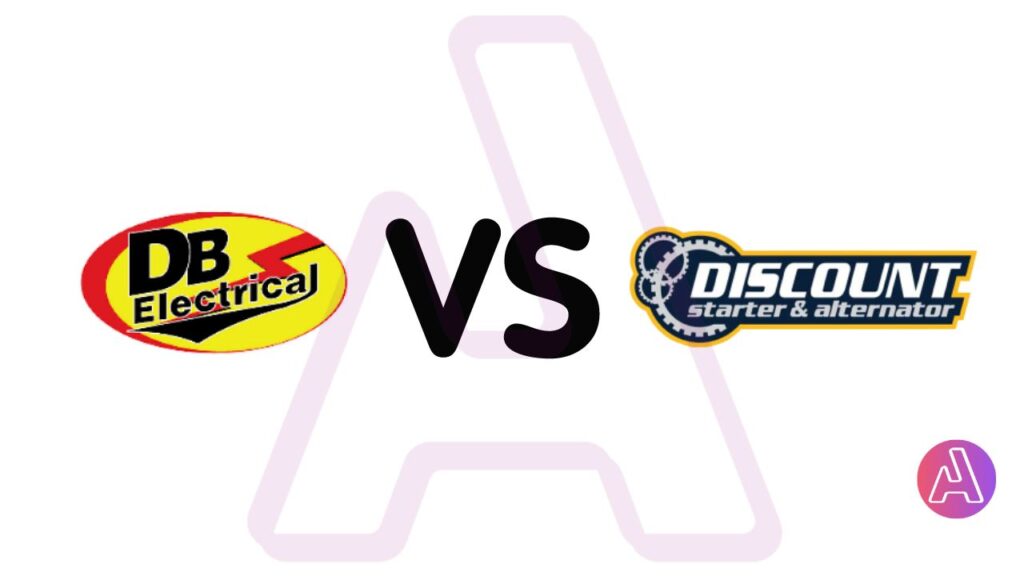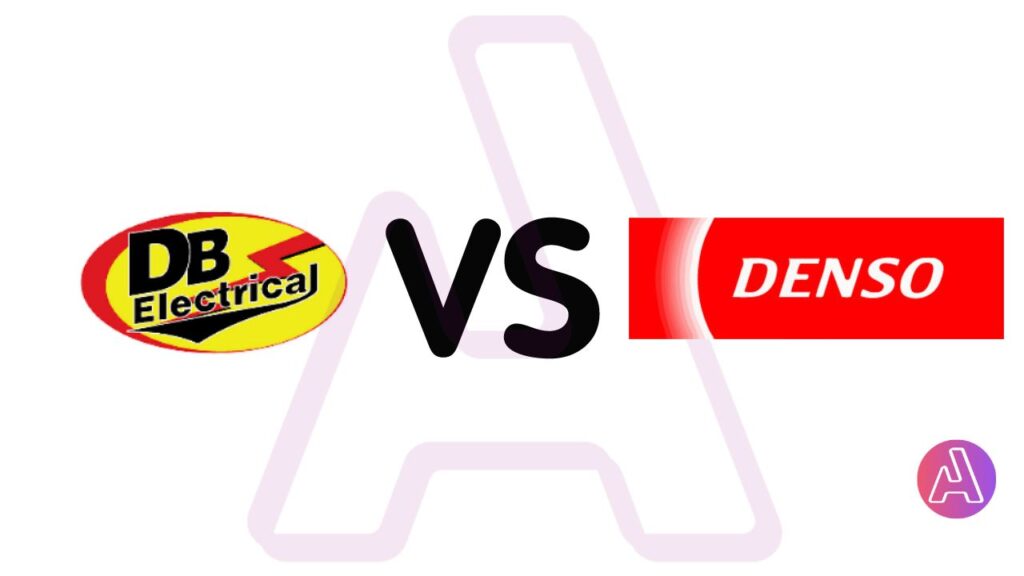By : David Edward
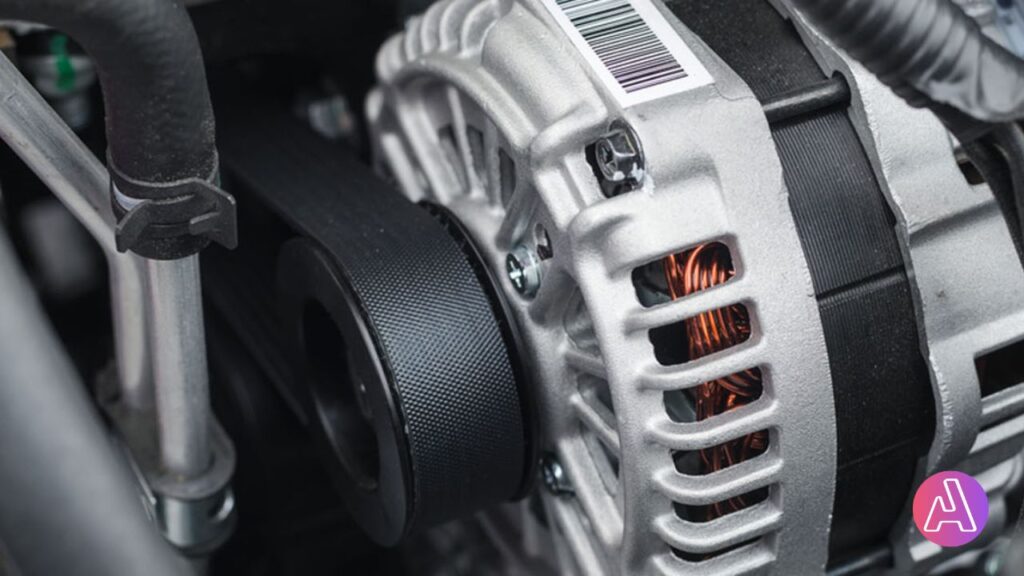
If you are looking for a comprehensive buying guide for your car’s alternator then you no longer have to worry. We have covered almost all the topics regarding alternators. By the end of this article, you will master alternators no matter what car you drive.
As you already know that the alternator is one of the most important parts of a car’s electrical system. It has a great impact on your car battery and electrical systems. So no matter what, you need to choose the right alternator for your car.
There is a vast number of alternators out there with a price range of 80$ to more than 1000$. So It is a bit challenging to know which alternator is a perfect fit for your car.
When it is time to replace your vehicle’s alternator, you need to think about a few things to make sure it works well and has longevity. This buying guide will show you the most important things to consider when buying an alternator for your car, with that said let us dive deep in.
WHAT IS THE MECHANISM OF A CAR ALTERNATOR
You should have some basic knowledge about alternators before you go shopping for one. An alternator is a piece of electrical and mechanical equipment that converts the engine’s mechanical energy into electrical power energy.
Alternator uses the movement of the engine to make alternating current (AC), which is then changed into direct current (DC) for the car’s electrical system.
The pulley, rotor, stator, diode rectifier, and voltage regulation are the most important parts of a standard car alternator. The rotor is made by wrapping a loop of wire around an iron core.
This rotor spins on the stator, which is made of coils of wire. When the rotor turns, it makes the stator windings conduct electricity. Then, by changing and managing this current, the electric parts of the car are driven.
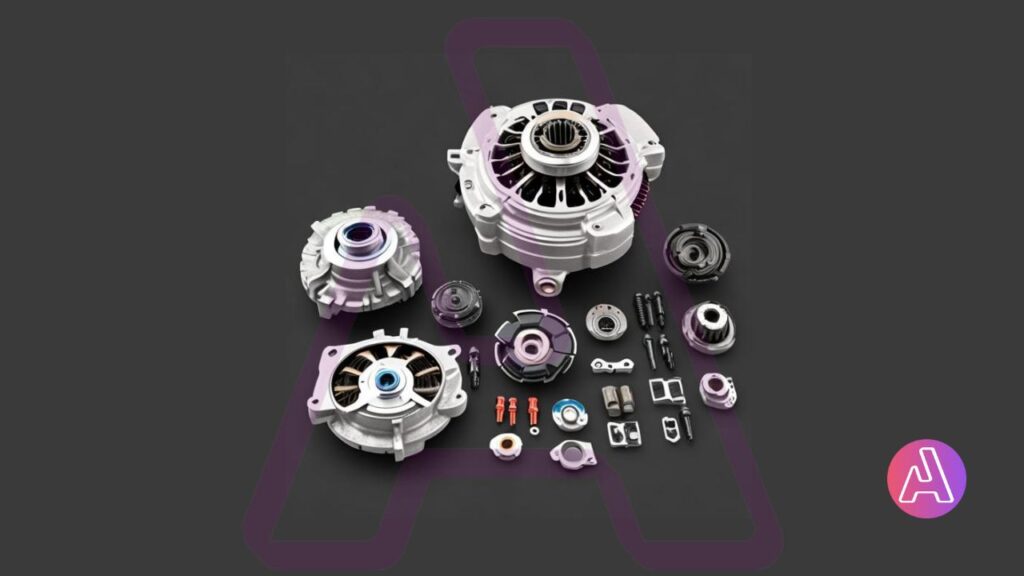
HOW TO PICK THE RIGHT ALTERNATOR FOR YOUR CAR
When buying an alternator for your car, keep in mind the following factors:
Compatibility with Your Vehicle
Compatibilty is the prior aspect that one should look for before buying an alternator. Consider these three things before buying an alternator for your car –
● How the alternator is connected
● How it is wired
● How the belt pulleys are set up.
Each car is different and not every alternator will fit in all cars. It’s important to make sure that the alternator you buy has the same make, model, and engine as your car.
Output Power and Amperage
The total power and current show how much energy the alternator can send to the car’s electrical system. Each car has different power requirements.
You have to know how much power your car’s electrical parts and tools need so you can choose an alternator that can meet those needs without straining.
Brand Reputation and Reliability
If you want a reliable alternator, you should buy an alternator from a brand that is known for making good ones. Brands that have been around for a long time and they tend to make quality products and stand behind them with warranties and good customer service.
Here are the names of some very well-renowned brands that have been making car alternators for a very long time.
● DB Electrical
● Remy
● Bosch
● Delco
These are the giants and the most popular brands and they have received positive reviews from thousands of their customers. You can buy their products from Amazon too.
TYPES OF CAR ALTERNATORS
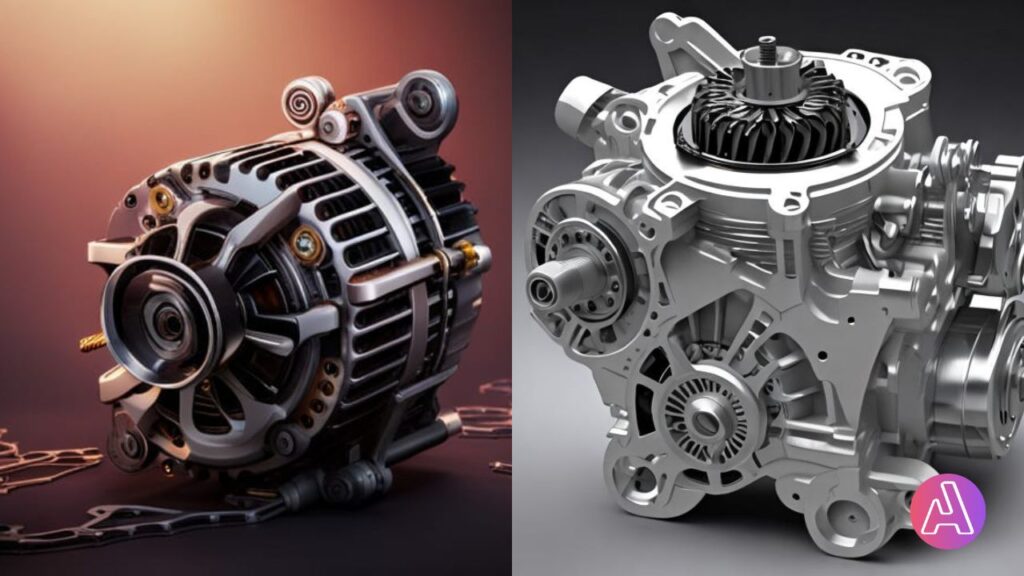
There are basically three kinds of alternators for cars:
OEM (Original Equipment Manufacturer) Alternators
OEM alternators are the ones that come with the car. These alternators are made by the car manufacturer, so they fit well and work well.
As you could tell, the default alternators are always the best. They are usually stable, but they may not have some of the advanced features like the aftermarket alternators but if you want, that can be added later.
Aftermarket Alternators
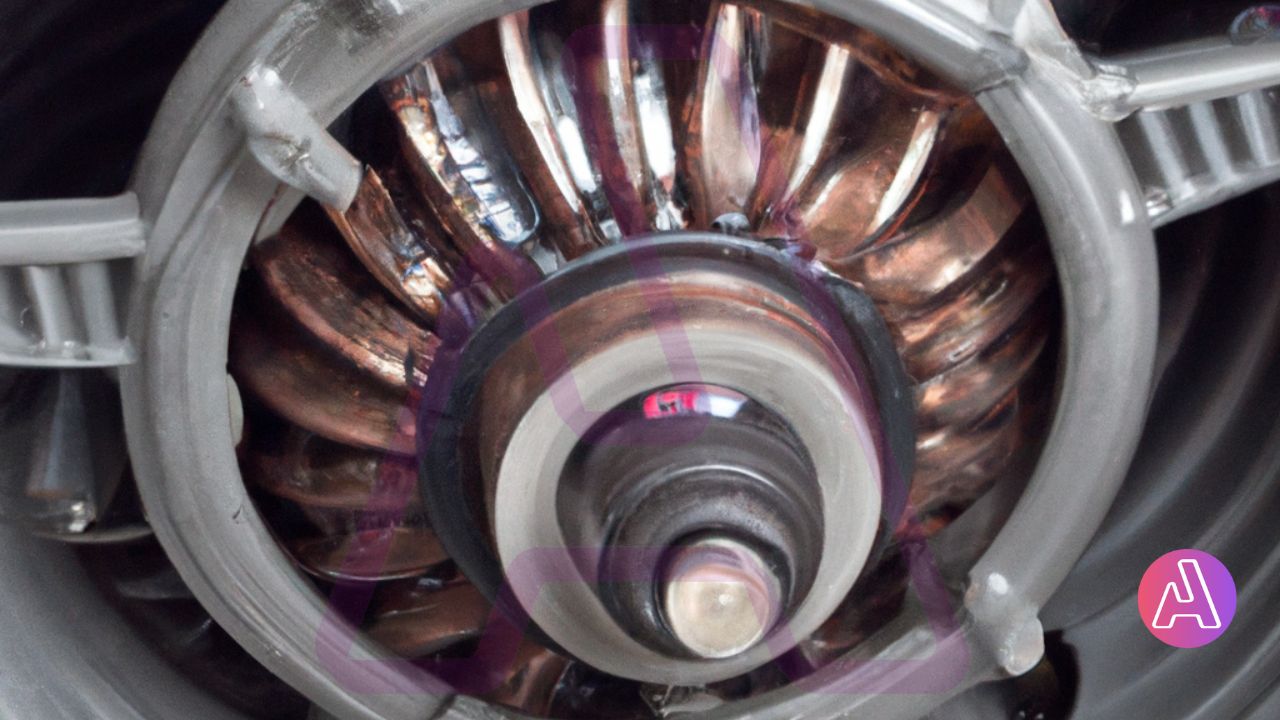
Alternators that are “aftermarket” aren’t made by the same company who made the car. They have more choices, such as bigger output sizes and extra premium functionalities.
Aftermarket alternators are a good call if your car is modified and has extra music systems. But it’s important to choose well-known brands and make sure the extra parts will work with your car.
High-Output Alternators
High-output alternators are made to put out a lot more power than regular alternators. These alternators are especially helpful for cars that requires more power, like those with extra music systems, a lot of lights, or other high-power devices.
It’s better to check your car’s compatibility and power requirements before inserting a high-output alternator. Think carefully about what your vehicle needs when choosing a high-output generator.
REMANUFACTURED VS. NEW ALTERNATORS
| Feature | Remanufactured Alternators | New Alternators |
| Definition | Previously used alternators that have been restored, repaired, and tested | New alternators produced by the manufacturer |
| Price | Less expensive | Generally more expensive compared to remanufactured alternators |
| Quality | Quality can vary depending on the remanufacturing process and the company | Better quality and reliability as they are produced to original specifications |
| Warranty | Typically comes with no warranty or customer service unless it is from any brand | Often comes with a longer warranty provided by the manufacturer and customer service. |
| Availability | May have a wider range of options for older or less common vehicle models | Widely available for most vehicle makes and models |
| Environmental Impact | Considered environmentally friendly as they reuse and recycle components | Manufacturing new alternators may have a larger environmental impact due to the use of new materials |
| Performance | Performance can be comparable to new alternators if properly remanufactured | Expected to perform optimally with new components and no previous wear |
| Core Charge | Often requires a core charge, which is refundable upon returning the old alternator | Generally, no core charge is required as they are brand new |
| Compatibility | May require specific matching based on the original alternator part number | Designed to be a direct fit replacement for the specific vehicle make and model |
GENERATOR VS. ALTERNATOR
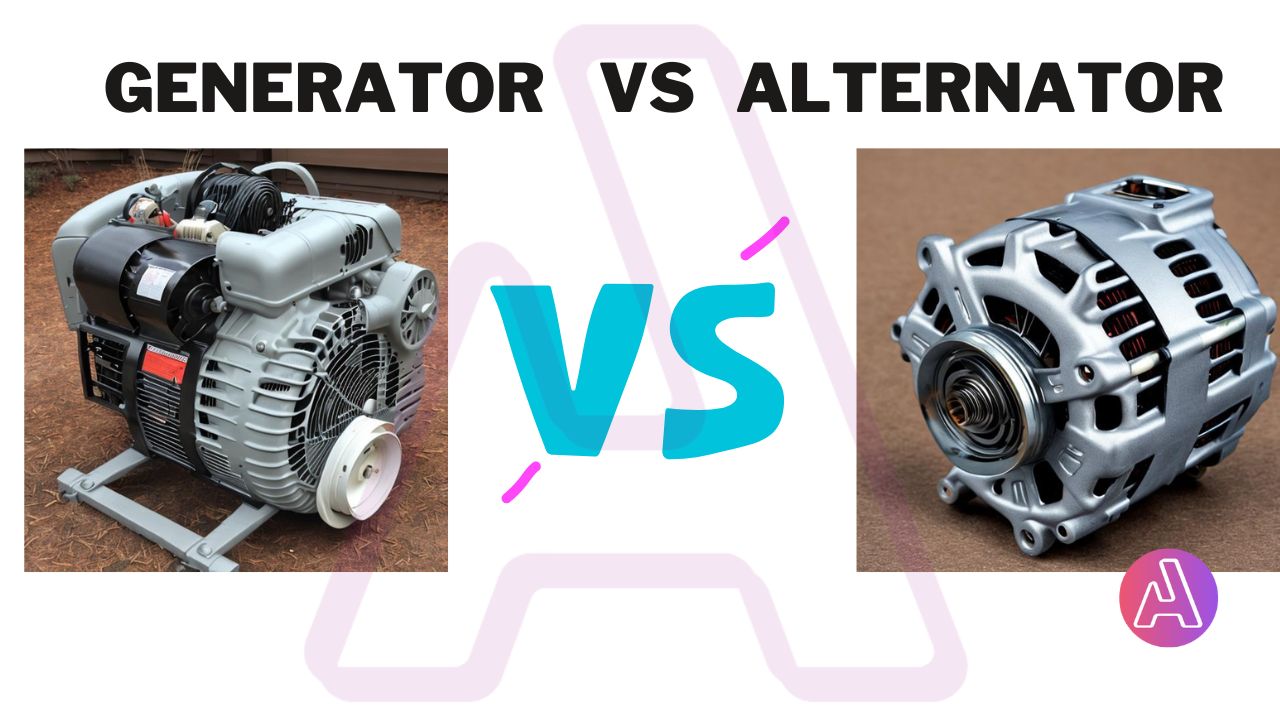
| Feature | Generator | Alternator |
| Operation | Electromagnetic induction in a wire coil generates electricity. | Electromagnetic induction employing a rotating magnetic field and stationary wire coils generates electricity. |
| Design | Can have different designs with rotating magnet and stationary coil or vice versa | Typically consists of a stationary outer stator and a rotating inner rotor |
| Output | Can produce either alternating current (AC) or direct current (DC) | Primarily produces an alternating current (AC) |
| Efficiency | Generally lower efficiency compared to alternators | Generally higher efficiency compared to generators |
| Voltage regulation | Typically requires external voltage regulation to maintain a constant output | Built-in voltage regulation to maintain a steady output |
| Size and weight | Generally larger and heavier | Generally more compact and lightweight |
| Maintenance | Requires regular maintenance due to brushes and commutator wear | Requires less maintenance as it has no brushes or commutator |
| Common applications | Often used in older vehicles and some off-grid applications | Commonly used in modern vehicles and power generation systems |
HOW TO INSTALL AN ALTERNATOR
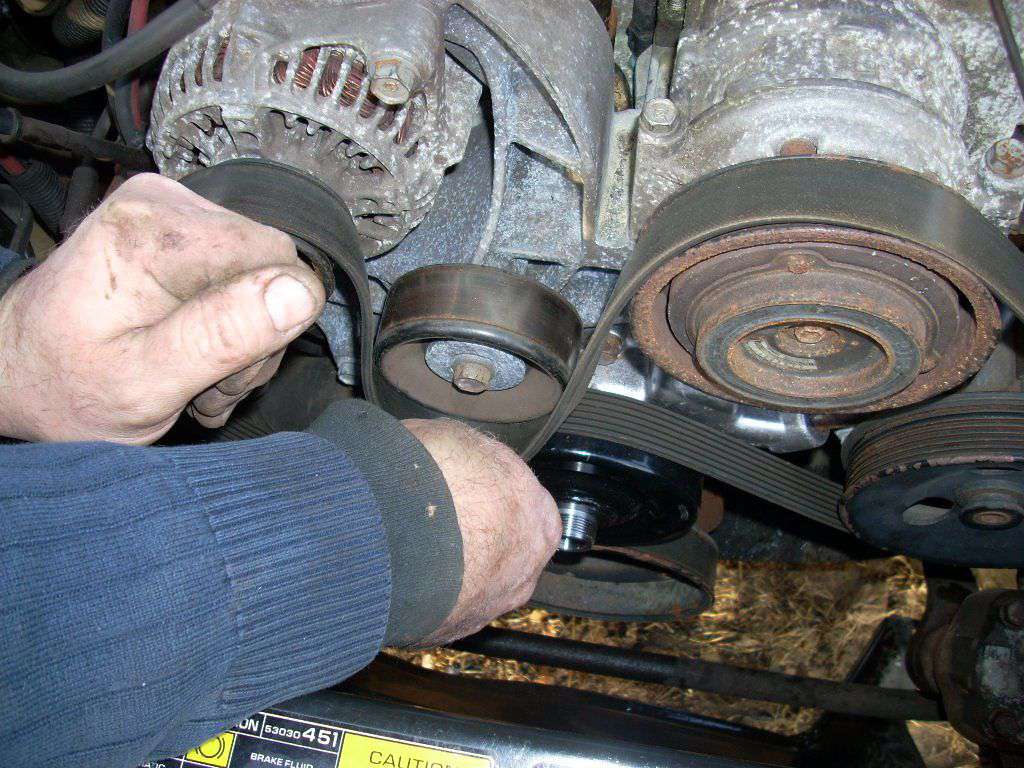
Image source :https://www.liveabout.com/
Installing an alternator may vary depending on the specific vehicle make and model. However, here are general steps to guide you through the installation process:
1. Preparation:
● Make sure that the vehicle is parked on a flat surface
● Turn your vehicle off.
● Disconnect the negative terminal of the battery to prevent electrical shock or damage.
2. Accessing the alternator:
● Locate the alternator in the engine compartment. It is attached to the engine and connected to the drive belt system.
● Remove any obstructions or components that may hinder access to the alternator, such as the air intake duct or drive belt.
3. Disconnecting the electrical connections:
● Locate the electrical connections on the alternator. There are usually two or three connections: the main power terminal, a small connector, and sometimes a ground wire.
● Carefully disconnect the electrical connectors by loosening the bolts or releasing the clips and securing them.
● Take note of the positions and routing of the wires to ensure proper reconnection later.
4. Loosening the mounting bolts:
● Identify the mounting bolts securing the alternator to the engine or its mounting bracket.
● Using the appropriate tools, loosen the bolts but do not remove them completely. This allows for easier removal of the alternator.
5. Removing the old alternator:
● Once the mounting bolts are sufficiently loosened, carefully maneuver and slide the alternator out of its mounting position.
● Be cautious of any remaining electrical or mechanical connections that may still be attached to the alternator.
6. Installing the new alternator:
● Position the new alternator in the mounting location, aligning it properly.
● Tighten the mounting bolts securely to hold the alternator in place. Ensure it is properly seated and aligned.
7. Reconnecting the electrical connections:
● Reattach the electrical connectors to the new alternator, following the same positions and routing as before.
● Ensure the connections are secure and tightened properly.
8. Finalizing the installation:
● Double-check all connections and ensure if they are secure and properly attached.
● Reinstall any components or obstructions that were removed earlier, such as the air intake duct or drive belt.
● Reconnect the negative terminal of the battery.
9. Testing the alternator:
● Start the vehicle and observe the operation of the new alternator.
● Check for any unusual noises, vibrations, or warning lights that may indicate a problem.
● Use a voltmeter to verify that the alternator is charging the battery correctly.
ASSESSING ALTERNATOR QUALITY
When looking for an alternator, it’s important to think about how well it works. Here are some things to keep in mind:
Warranty and Customer Support
Look for alternators that come with a good guarantee that covers any problems or breakdowns within a certain time frame. Also, if you have any problems or need help during the repair or replacement process, good customer service can be very helpful.
Alternators are car parts and these parts can go south in no time. So it’s better to look for alternators and brands that provide warranty and customer services accordingly.
There are good brands like DB Electrical, Remy, Delco, etc who provide good service and warranty starting from 1 to 5 years. These brands make a good promise and their alternators and other products show that it is sure about how good the products are.
Determining Power Requirements
To pick the right alternator for your car, you need to know how much power it needs. This means that the basic electricity load and any extra power needs must be taken into account:
● Calculating Your Vehicle’s Power Needs
Start by figuring out how much power your car’s basic electricity load, which includes the lights, fans, and music system, needs.
● Considering Additional Power Demands
If you want to add custom parts or make changes to your car that use a lot of power, like a powerful music system or off-road lights, you will need to plan for this extra power.
Make sure that the charger you choose can handle the total amount of electricity without getting tired or giving you trouble. It’s better to go for high-output alternators if you are up for modifying your car.
Budget Considerations
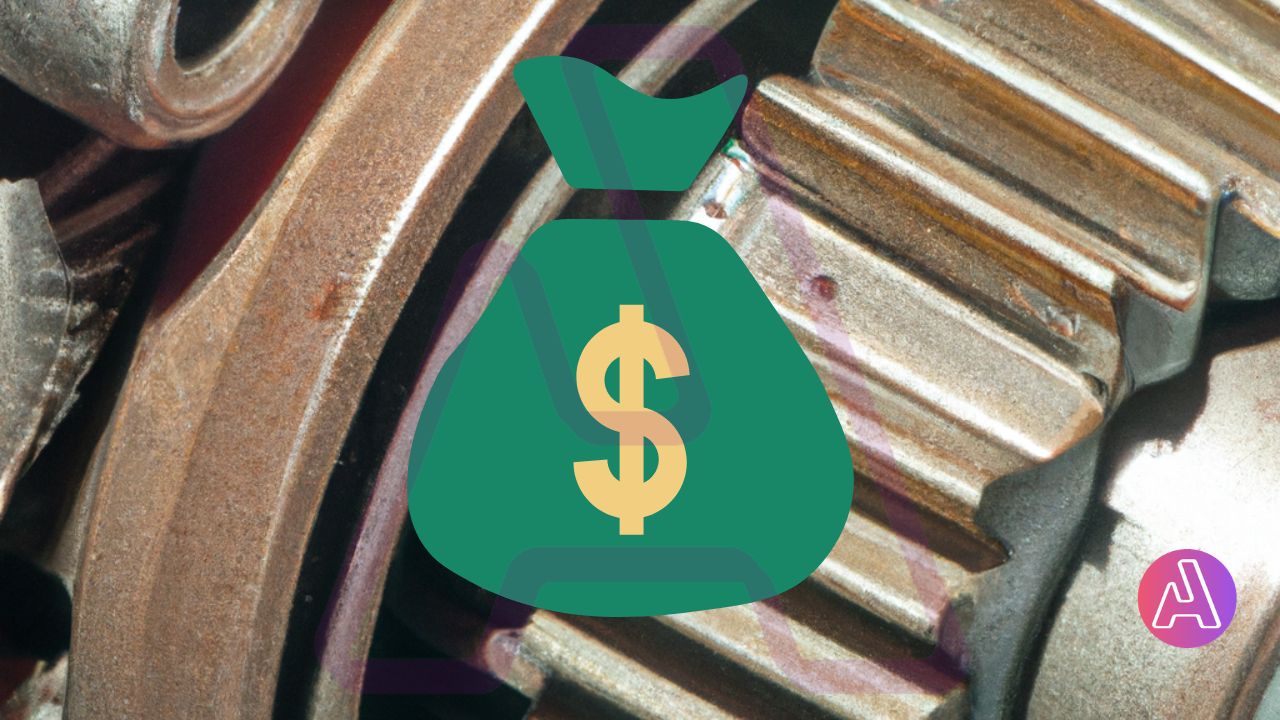
The price of car alternators starts from 80$-1000$. You can get a reconditioned alternator from your native mechanic but it is very risky and you will most likely end up harming your car battery.
When getting an alternator for your car, you should put quality and performance first, but you should also think about the price. Keep the following in mind:
● Finding the Best Value for Your Money
Look for alternators that have a good mix of speed, dependability, and price. Something might not be as good or last as long if it is too cheap.
Compare prices at different stores and think about how well-known the name is to find the best deal. You can also check our article for the best affordable car alternators.
● Avoiding Overly Cheap Alternators
You should stay away from alternators that are too cheap and seem too good to be true. They might not be as good, might not make the right claims, or might not work well together.
If you buy a good alternator, you won’t have to worry about costly fixes in the future. Whereas a cheap alternator may have a bad impact on your vehicle’s electrical parts.
TIPS FOR MAINTAINING YOUR ALTERNATOR LONGEVITY
Use these tips to fix your battery so it lasts as long as possible:
● Keep the alternator clean.
● Make sure that electricity links are checked and fixed often.
● Don’t plug in too many things to the generator without thinking about how the power will move.
● Follow the manufacturer’s guidelines and user manual about how often you should tighten the belt and check the brushes.
HOW DO YOU KNOW IF YOUR ALTERNATOR IS BROKEN OR NOT WORKING?
When an alternator is broken or failing, it can show a number of different signs. Here are some common signs to look out for
Dimming or flashing lights: Your car’s electrical parts get power from the alternator. If your headlights, panel lights, or interior lights dim or flicker, it could mean that your car alternator isn’t working right.
Battery-related issues: When the engine is running, the battery is charged by the charger. If the engine isn’t running right, it might not charge the battery well, which could make the battery weak or dead. You might have trouble starting your car.
Burning rubber smell: A broken alternator can sometimes smell like burning rubber. This can happen if the alternator’s belt is loose or if the parts inside are too hot.
Warning lights: Most new cars have a light on the dashboard that lets you know when the battery or engine needs to be charged. This light might come on if the battery isn’t working right. Warning lights can be a sign of a big problem, so it’s important to pay attention to them.
Problems with electricity: The alternator powers a lot of electrical parts, so if it stops working, it could affect other systems. You might have trouble with your car’s auto windows, radio, air conditioner, or other electrical parts.
Strange sounds: A broken alternator can make strange sounds. From the engine, you might hear sounds like grinding or whining. These noises can be caused by a broken pulley, bearings, or parts inside the engine.
Stalls or hard starts: The alternator also powers the system that turns on the engine. If your alternator stops working, your car might not start or run well. The engine could slow, stop, or refuse to turn on at all.
FREQUENTLY ASKED QUESTIONS (FAQs)
How long do alternators usually last in cars?
Usually, an alternator can last anywhere from 80,000 to 150,000 miles.
It depends on three factors
● How you drive your car
● How much energy your car uses
● How well you take care of your car
If you check on them often and fix any problems right away, they will last longer.
Can I change the engine in my car on my own?
Yes, you can. Some people change the alternator on their own, but it can be a hard job that requires the right tools, knowledge, and experience.
Most of the time, it’s best to have a trained mechanic repair during the changing session to make sure it fits well and works well.
Do all cars need high-output alternators?
No. Not every car needs an alternator with a lot of power. Most of the time, high-output alternators are required when an extra part or change makes a car need more power.
People who drive their cars every day usually only need a regular OEM alternator or an aftermarket alternator that meets the car’s power needs. But if your car has extra music systems, lots of lights, or other gadgets that use a lot of power then you might need a high-output alternator.
How can I tell if my alternator is about to stop working?
Some indications that your alternator is not working properly are
● The lights dim or flash
● There are warning lights on the dashboard
● The battery is dead or weak
● The generator makes strange noises
● The car is hard to start.
If any of these things happen to your car, it’s best to check your car alternator by yourself if you are someone with this sort of expertise, or else contact any professional mechanic.
Where can I get the best one for my car?
Car alternators can be bought at approved shops, auto parts stores, online markets, and places that only sell alternators.
You will find the best alternator deals on Amazon and other e-commerce platforms. Find out who the seller is and how reliable they are, and make sure the alternator you buy will work with your car.
FINAL WORDS
A buying guide for car alternators is meant to teach people what they need to know to pick the best alternator for their cars. Car owners can make sure their electrical systems last as long as possible and work as well as possible by knowing the important parts and making smart decisions.
To keep the power system in good shape, it’s important to get the right alternator for your car. Think about how easy it is to get to, how much power it takes, how good it is, and how much money you have.
Always keep in mind that dependability and durability are important. If you get the right alternator and install and fix it right, your car’s electrical system will work well.
Look for alternators that are made with stable, high-quality parts that will last a long time. Hope this buying guide will help you choose the right alternator.
